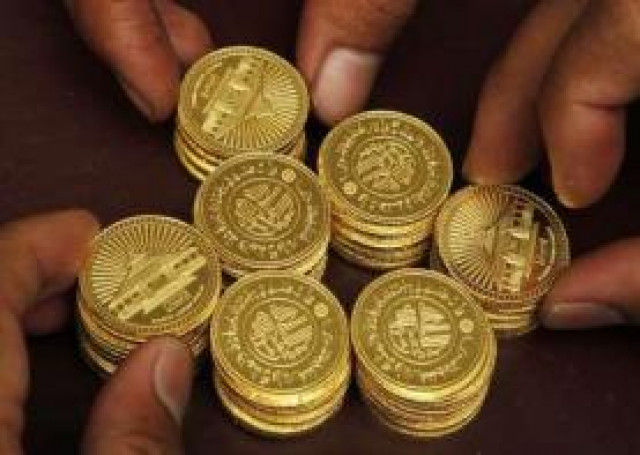The gold dinar
The dollar is now just a piece of paper with the promise to pay, but with no backing of gold

The dollar has remained unchallenged since the end of World War II. There is no international law or agreement that binds countries to use the dollar as means of payments or reserve currency. This dominance was believed to be the result of the facts that the United States was the largest economy and trader. At the Bretton Woods Conference, which created the IMF and the World Bank, Keynes’ proposal for an international currency called bancor, was rejected. There was an ad hoc arrangement that the dollar would be pegged to gold, and other currencies would have fixed exchange rates around this parity. This arrangement broke down in 1971. More significantly, China today is the largest merchandise trader and the second largest economy. These developments have not affected the role of the dollar. Two-thirds of the official foreign exchange reserves are still held in dollars. Forty per cent of the world’s debt is denominated in dollars. Dollars are used in more than half of the international trade. The role of the Chinese yuan is insignificant, but increasing. Eurozone, the most effective attempt to replace the dollar, lives with more than half of its imports invoiced in dollars. Even in the case of exports, considerable invoicing continues in dollars.
Locally as well as globally, money is anything that is generally acceptable with minimal risk and transaction costs. The dollar is now just a piece of paper with the promise to pay, but with no backing of gold. It continues to hold sway due to lower cost and general acceptability. In the eyes of investors and central banks deciding the composition of their reserves, the ultimate guarantee is the largest economic and military power. In addition to gold, the dinar in the Middle Ages was also backed up by the economic and military power of the Muslim empire. Like the euro, the gold dinar can facilitate trade between member countries but not beyond. However, the Eurozone was not built in a day. It also had its sceptics like the UK, who never compromised on the pound sterling and is now exiting the European Union itself.
Published in The Express Tribune, January 10th, 2020.
Like Opinion & Editorial on Facebook, follow @ETOpEd on Twitter to receive all updates on all our daily pieces.
















COMMENTS
Comments are moderated and generally will be posted if they are on-topic and not abusive.
For more information, please see our Comments FAQ